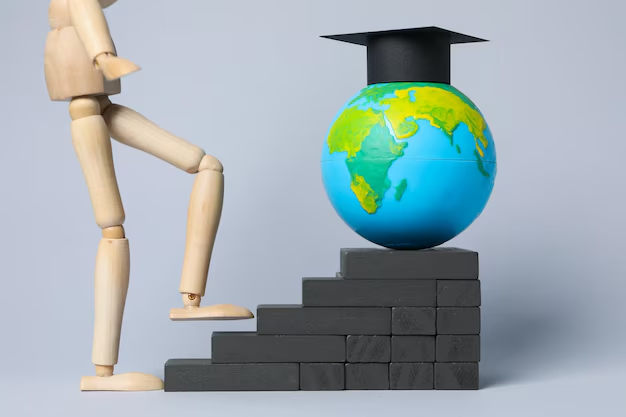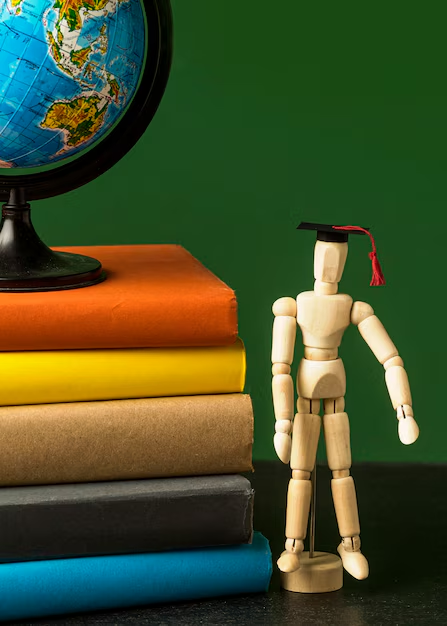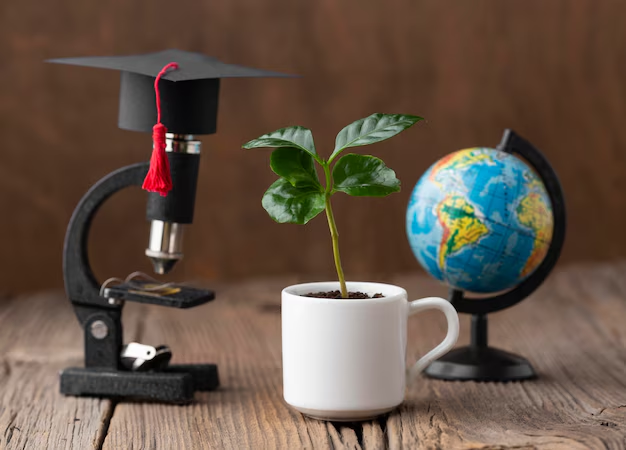Education’s Role in Personal and Societal Growth Education is a cornerstone of human development, playing an essential role in both individual transformation and the advancement of society as a whole. It does much more than simply impart knowledge; education shapes values, builds skills, and fosters a sense of agency. For individuals, it paves the way for personal growth, better career opportunities, and lifelong learning. For societies, education serves as the foundation for innovation, economic stability, and social cohesion.
In this blog, we will examine the dual role of education in promoting both personal and societal growth. By understanding its transformative power, we can appreciate why education is a necessary investment for the future of individuals and communities alike.
Education as a Pathway to Personal Growth
Education is essential to personal development, as it equips individuals with the knowledge, skills, and mindset needed to navigate life’s challenges and seize opportunities.
A. Knowledge Acquisition and Skill Development
The primary purpose of education is to provide individuals with knowledge and skills that they can apply in their personal and professional lives. From literacy and numeracy in early education to specialized knowledge in fields such as science, engineering, and the arts, education enables people to think critically, solve problems, and make informed decisions. For instance:
- Literacy is fundamental to everyday functioning and communication, allowing individuals to read, write, and interact meaningfully with the world around them.
- Technical skills enable people to work effectively in a range of fields, from healthcare to technology, expanding career opportunities and improving financial stability.
Through education, individuals are equipped to think independently, adapt to new situations, and develop resilience, making them better prepared to handle life’s complexities.
B. Building Confidence and Self-Esteem
Education fosters self-confidence by allowing people to master new skills, overcome challenges, and achieve personal goals. This sense of accomplishment enhances self-worth and encourages individuals to pursue further learning and growth. In schools and colleges, students are given opportunities to engage in activities like public speaking, teamwork, and problem-solving, which boost their self-esteem and communication skills.
Additionally, education helps individuals identify their strengths and interests, which is crucial for personal fulfillment. For instance, a student may discover a passion for science or literature, motivating them to pursue further studies or a career in that field.
C. Lifelong Learning and Adaptability
In today’s rapidly changing world, the ability to learn and adapt is essential. Education fosters a love of learning, encouraging individuals to pursue knowledge beyond the classroom. Lifelong learning allows people to continuously improve their skills, stay informed about current trends, and remain adaptable in the face of new challenges. This continuous pursuit of knowledge is crucial not only for personal satisfaction but also for remaining relevant in a dynamic job market.

Education as a Driver of Societal Growth
Education is instrumental in building healthy, prosperous, and inclusive societies. By empowering individuals, it also promotes collective well-being and contributes to the advancement of communities and nations.
A. Fostering Economic Development
Education is a key factor in economic growth. By equipping people with skills and knowledge, education increases productivity and innovation, leading to economic stability and growth. An educated workforce is better able to adopt new technologies, improve processes, and contribute to industries such as healthcare, information technology, and sustainable energy. This not only boosts the economy but also improves living standards and reduces poverty.
Moreover, studies have shown that higher levels of education are associated with lower unemployment rates and better-paying jobs. When people have access to education, they can access better employment opportunities, reducing economic inequality and promoting financial security.
B. Promoting Social Cohesion and Reducing Inequality
Education plays a vital role in fostering social cohesion by teaching individuals to appreciate diversity, embrace tolerance, and value inclusion. Through exposure to diverse perspectives, cultures, and ideas, students learn to respect others and collaborate effectively, laying the foundation for a more peaceful and inclusive society.
Moreover, education reduces inequality by offering everyone, regardless of background, the opportunity to succeed. When education is made accessible to all, regardless of socio-economic status, race, or gender, it levels the playing field, giving everyone an equal chance to achieve their potential. This is especially critical in bridging gaps that exist within marginalized communities and providing opportunities for upward mobility.
C. Supporting Civic Engagement and Democracy
An educated society is a more informed and engaged society. Education fosters civic awareness by teaching individuals about their rights, responsibilities, and the importance of active participation in democracy. Through subjects like history, social studies, and political science, people gain an understanding of governmental structures, civic duties, and social issues, empowering them to make informed decisions and hold governments accountable.
Educated individuals are more likely to vote, participate in community activities, and advocate for policies that benefit society. By fostering a sense of civic responsibility, education encourages people to work collectively toward a better future.
D. Driving Innovation and Technological Advancement
Education is the backbone of innovation, serving as a foundation for scientific research, technological breakthroughs, and creative problem-solving. Universities and research institutions drive innovation by conducting research in fields such as medicine, engineering, and environmental science, resulting in advancements that improve quality of life and address global challenges.
For example, education has fueled the development of renewable energy solutions, medical technologies, and digital tools that connect people globally. Through education, individuals acquire the knowledge and skills needed to drive progress and create sustainable solutions, benefiting society as a whole.
Education for a Healthier, More Sustainable World
Education also contributes to health and sustainability, both of which are critical to the well-being of individuals and societies.
A. Promoting Health and Well-Being
Education equips people with knowledge about health, hygiene, and preventive care, empowering them to make informed decisions about their well-being. Educated individuals are more likely to adopt healthy behaviors, such as regular exercise, balanced nutrition, and responsible healthcare practices. For instance, sex education and information about communicable diseases empower individuals to protect themselves and their communities.
Furthermore, health education reduces the burden on healthcare systems by promoting preventive care and reducing the prevalence of lifestyle-related diseases. This results in healthier populations and lower healthcare costs, ultimately benefiting society as a whole.
B. Fostering Environmental Awareness and Sustainability
As global environmental issues become more pressing, education plays a vital role in raising awareness about sustainability and environmental stewardship. Through environmental education, individuals learn about the impact of human activities on the planet and the importance of conservation.
Education fosters a sense of responsibility toward the environment, encouraging people to adopt sustainable practices such as recycling, conserving energy, and supporting eco-friendly policies. A society that values sustainability is more likely to pursue initiatives that protect natural resources and combat climate change, contributing to a healthier planet for future generations.

Conclusion
Education is a powerful force for both personal and societal growth, offering individuals the tools they need to navigate life and empowering societies to reach their full potential. It enables personal fulfillment, economic stability, social cohesion, civic engagement, and technological innovation, all of which are essential for the development of a thriving community.
In a rapidly evolving world, the role of education has never been more important. By prioritizing access to quality education for all, we can create a society that values knowledge, fosters empathy, and pursues sustainable progress. Education truly is the foundation upon which individuals and societies build a brighter future.

